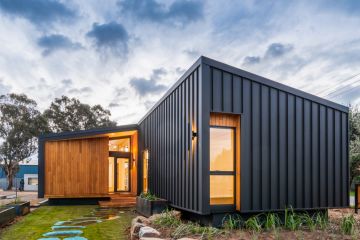How hopeful first-home buyers can recover from economic hits

Those beginning 2020 with dreams to purchase a first home may find their plans have been derailed by reduced income or loss of employment as a result of the coronavirus pandemic.
With the right financial planning and advice, those plans can be put back on track. However, it’s important for prospective home owners to be wary of the risks involved.
Can you apply for a home loan despite loss of income?
Government initiatives such as JobSeeker and the coronavirus supplement can provide up to $1100 per week in support payments for those who have lost their job.
Despite the supplement expiring in September alongside JobKeeper, gaining pre-approval on a home loan was still possible while on these support payments, senior home loan specialist at Domain Home Loans Benjamin Younan said.
“The good news about working with so many banks, some are being a lot more accommodating and flexible than others in regards to using income such as JobKeeper,” he said.
“I’ve personally had a lot of scenarios recently where one of the partners is unemployed yet we were still able to get the borrowing needed, because the applicant’s income matched up to what they needed to borrow.”

Borrowing power – the amount a lender is willing to loan a first-home buyer to purchase their home – is usually reduced as a borrower’s income does.
Therefore buyers might need to readjust their expectations and budget as a result, My Wealth Solutions director and managing principal Guy Freeman said.
“Income is one of the biggest measurements the bank uses to allow you to apply for a loan,” he said. “In that situation, it’s going to be difficult. A lot of the banks will become more restricted to who they’re lending to.”
Hopeful buyers should be realistic about what their income will be once government initiatives cease. A reliable source of income was imperative to being able to pay your mortgage in the long-run, financial advisor Kyle Frost from Millennial Independent Advice said.
“If your income is not reliable when you start your mortgage repayments, or if your cash flow is really tight in that scenario, you’d want a lot of buffers in place,” Frost said.
“Definitely don’t sit on your hands, but at the same time I’d want to make sure to play out the worst-case scenario, especially if you lose JobKeeper in September. ”
Create a 12-month plan
If purchasing with no or reduced employment is unrealistic, creating a longer-term plan can help buyers stay on the right track.
“Your lending specialist will let you know what your approximate borrowing power will be based on your projected situation,” Younan said.
“Come up with a plan over the next 12 months. The specialist is going to figure out what deposit is required for the purchase price, how to treat a probationary period if you’re going to a new employer, and what the proposed salary is if you’ve lost a job but you’re looking at finding a new one.”
Stretching the timeframe for purchasing can help pin down reliable employment and give hopeful buyers more time to save their deposit.
“Revisiting their budget is a huge one – especially on the discretionary spending side of things,” Freeman said. “One positive from the pandemic is that people aren’t going out as much, so you might be able to save a little bit more with regards to staying home.”
Protect your savings
Financial experts say it’s all too common for savings to disintegrate after a job loss.
These savings provide comfort during periods of financial stress, but are also important in building up a deposit and subsequently reducing the amount of a home loan.

“Protect what you have,” Frost urged. “If you’re in the position to buy in the next 12 months, you’ve worked really hard to get to where you are so you don’t have to dig back into savings.”
Instead, renters should try to negotiate a rent reduction, move in with family if available, and try to save on recurring household expenses.
“Ensuring that personal liabilities are still being paid on time and savings are still being put away will still be the most simple but effective step,” Younan said.
If receiving payments from the government, Frost advises to continue the habit of saving as best you can.
“The biggest thing I find that helps get people towards a first-home deposit is the momentum in their savings,” he said. “When you lose a job, you lose that momentum.”
Frost likens saving to exercise – if you’re exercising and seeing results in your body, you’re likely to stay motivated. When you’re not seeing results, the motivation is harder to maintain and you might throw in the towel altogether.
It’s the same with saving – when regular salary payments cease, it can deter you from saving a regular amount of money once your employment improves.
Frost said it was important to maintain that habit as best you could and not fall into unhealthy spending habits.
We recommend
States
Capital Cities
Capital Cities - Rentals
Popular Areas
Allhomes
More







